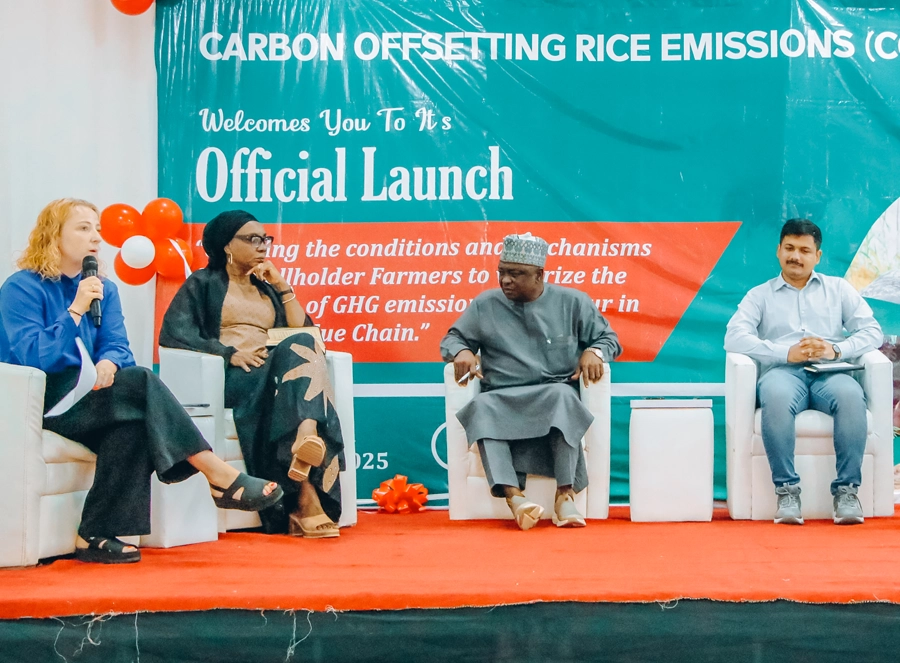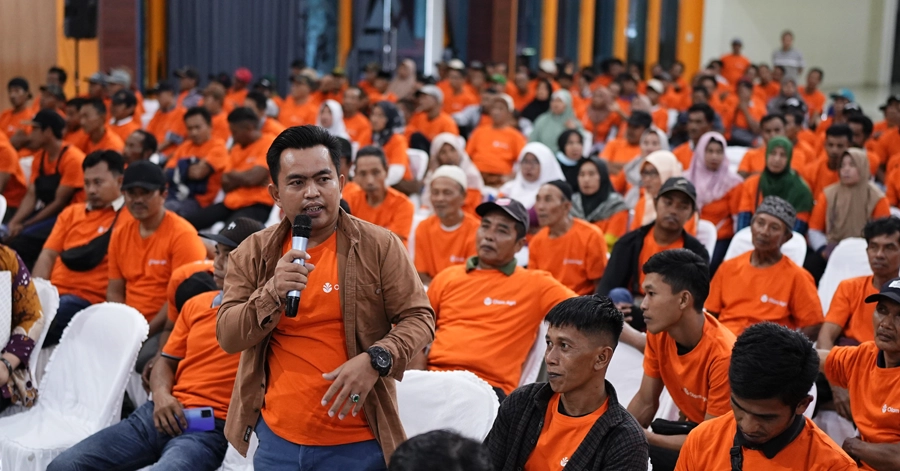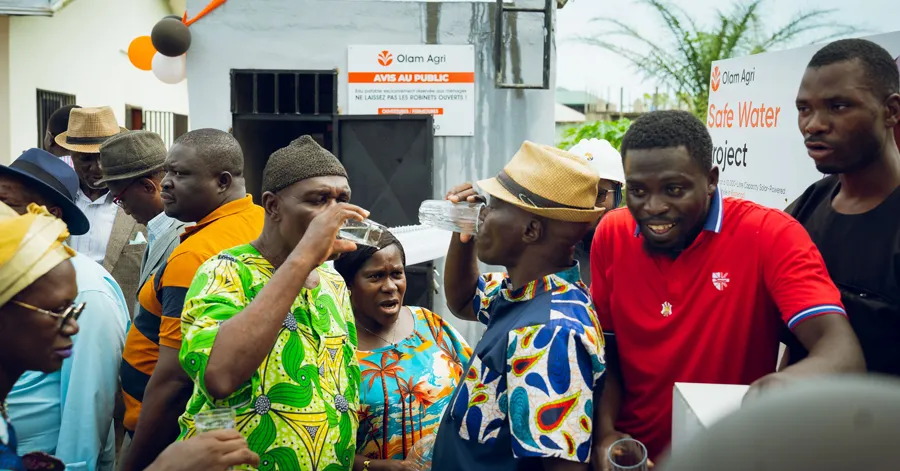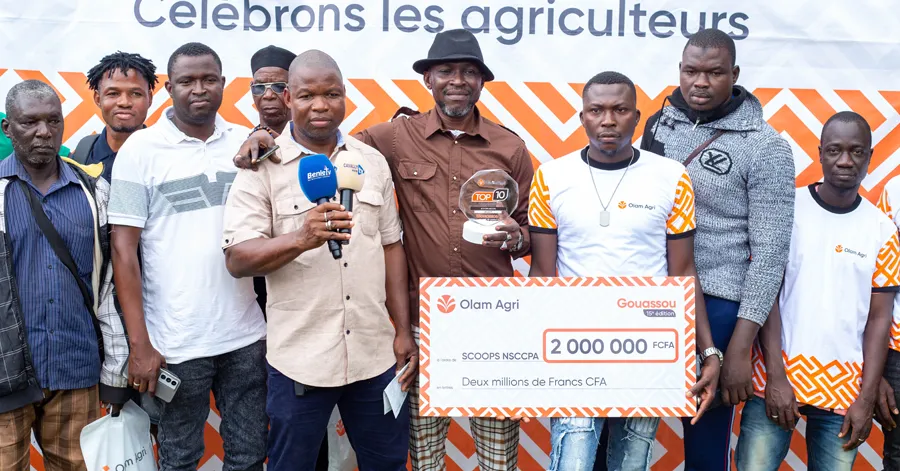Launching Carbon Offsetting Rice Emissions Project with GIZ to Reduce Rice Farming Emissions in Nigeria
Abuja, Nigeria – Olam Agri, in partnership with Deutsche Gesellschaft für Internationale Zusammenarbeit (GIZ) GmbH, has launched the Carbon Offsetting Rice Emissions (CORE) project in Nigeria. The project is supported by the Fund for the Promotion of Innovation in Agriculture (i4Ag) and commissioned by Germany’s Federal Ministry for Economic Cooperation and Development (BMZ). A Memorandum of Understanding (MoU) signed in Abuja on August 18, marked this significant milestone in Nigeria’s journey toward climate-smart agriculture.
Operating across Benue, Nasarawa, and Kano States, CORE will run until June 2027. Its primary objective is to promote scalable, climate-friendly farming methods that reduce greenhouse gas emissions while increasing yields and reducing production costs, tackling climate change and food security in tandem. The project will also develop internationally recognised carbon certification methodologies, paving the way for farmers to earn carbon credits in return for climate-friendly practices.

Rice is Nigeria’s most important staple, with paddy production reaching 8.1 million metric tons in 2024 (AFEX). However, traditional flooded paddy fields emit significant methane (CH₄), a greenhouse gas more than 25 times as potent as CO₂. At the same time, smallholder farmers, particularly women, are both highly vulnerable to climate impacts and central to the shift towards sustainable farming practices.
CORE’s implementation directly aligns with Nigeria’s national and sectoral priorities, supporting the country’s agricultural transformation agenda, its Nationally Determined Contributions (NDCs), and the Sustainable Development Goals (SDGs) By bringing together stakeholders from government, the private sector, institutions, and civil society, the project strengthens collaboration to drive climate-smart farming at scale.
Through innovative methods such as alternate wetting and drying , a water-saving technique that reduces methane emissions, biochar production, a process that converts agricultural waste into a soil amendment, Azolla integration, a practice that uses a nitrogen-fixing water fern to reduce the need for chemical fertilisers, and improved post-harvest practices, CORE aims to reduce emissions, enhance water efficiency, improve soil health, and minimise post-harvest losses.
The CORE Project’s Impact Goals Include:
- 60,000 tons of CO₂-equivalent emissions reduced
- 12,000 smallholder farmers trained in low-emission farming practices
- 3,000 women farmers empowered as leaders and entrepreneurs
- One internationally submitted carbon accreditation methodology (PDD)
- Two strategic MoUs signed to scale project outcomes

The CORE project reflects Olam Agri’s deep commitment to both food security and environmental stewardship. By empowering Nigeria’s rice farmers with innovative, science-based solutions, we’re creating a future where productivity and sustainability go hand in hand. The potential for carbon credits ensures that farmers are not just part of the fight against climate change, they are directly rewarded for their efforts.
Paul Nicholson,
Senior Vice President of Rice at Olam Agri
This partnership is a testament to what can be achieved when public and private sectors unite for a common goal. CORE will deliver tangible benefits to farmers, communities, and the environment. By combining Olam Agri’s value chain expertise with GIZ’s technical know-how, we are building a resilient, climate-smart rice sector that will serve Nigeria for generations to come.
Sriram Athaluri,
Branch Manager at Olam Agri in Nigeria

To grow this pilot beyond its initial scope, we call on coordinated investment from government bodies, private companies, and civil society organisations. We invite all stakeholders to collaborate and help build the regulatory frameworks and enabling conditions required for climate-smart agricultural practices to thrive across Nigeria.
Aligned with the UN Sustainable Development Goals (SDGs). and Nigeria’s agricultural transformation agenda, CORE is designed to have a long-term impact. It ensures that farmers have the knowledge, resources, and market access necessary to make climate-smart rice farming the new norm, paving the way for a sustainable and prosperous future for Nigeria's rice sector.






